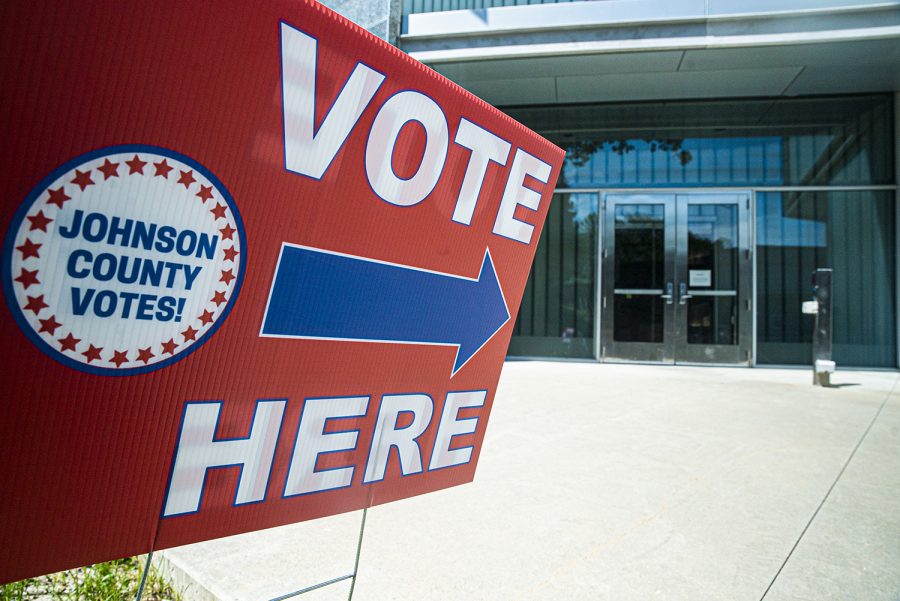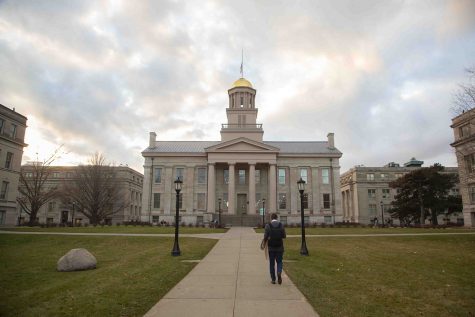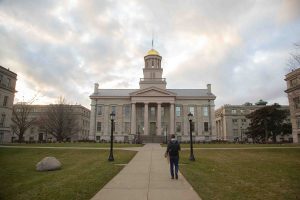Opinion | The apathetic young voter narrative is false
Many people accuse young people of being apathetic voters without considering the barriers in place to voting.
A Johnson County precinct indicator is seen outside The University of Iowa Visual Arts building on Tuesday, June 2, 2020. Counties all across Iowa along with eight other states are participating in the 2020 primary elections.
September 14, 2020
For years there has been an ongoing narrative that young people are often apathetic when it comes to civic engagement, especially voting, however, I think more than ever this narrative is false. Young people have been incredibly engaged civically, whether that be through protesting, voting, caucusing, having difficult conversations, creating support groups, advocating through social media, and more.
Here at Iowa, Nonpartisan Organizations like Hawk The Vote, are full of young people working hard to demystify voting for their peers by offering assistance and answering questions people have in regards to voting and registering in Iowa. Organizations like Hawk The Vote are living proof that the apathetic young voter narrative is false and acts as a means to undermine the beliefs and efforts made by young people.
There’s a reason for the passion put into these organizations.
According to the American Psychological Foundation, Gen Z members experience higher levels of stress due to issues such as immigration, climate change, sexual harassment, sexual assault, and gun control than their millennial or baby boomer counterparts.
Seventy-five percent of Gen Z members reported stress over mass shootings compared to 62 percent for adults in general, 58 percent of Gen Z members reported stress due to climate change and global warming compared to 51 percent of adults overall, and 57 percent of Gen Z members reported stress due to immigration and separation of families compared to 45 percent of adults overall.
These statistics clearly demonstrate young people are not apathetic in the face of social and political issues happening in the world. It’s not a lack of caring about these issues that cause a lack of political pressure.
Additionally, young people have been turning out for candidates they feel most align with their beliefs.
In 2016, Bernie Sanders won over a large portion of the youth population. According to an article done by The New York Times, in 2016 young Iowans, ages 17 to 29 flocked to Sanders creating a gap by 70 percentage points between him and Hillary Clinton.
Much of the support from young people for Sanders stems from his vocality on policies such as student loan debt and rising health-care costs that haunt many young people.
Although only 13 percent of the vote in the 2018 midterm election came from people under 30 according to Miscellany News, young people have turned out more than they have before. According to The United States Census Bureau from 2014 to 2018 voter turnout for people ages 18-29 increased by 15.7 percent.
Despite all of this, there is still a common narrative that the lack of young voter turnout results from the apathetic nature of young voters.
What is not taken into account is the lack of education surrounding how to be engaged with government at the local, state, and federal levels.
Despite voting laws varying county by county and state by state, there is little education surrounding voting for youth. According to The Miscellany News there are only nine states and the District of Columbia that require some form of government or civics class in high school. Furthermore, these classes typically don’t put a particular emphasis on current voting policies and civic engagement for the youth.
It is hypocritical to complain about the lack of youth engagement when they are not taught how to engage with the system in the first place. If the U.S. wants the younger generation to vote, it must put forward the effort to open the vote to them.
Columns reflect the opinions of the authors and are not necessarily those of the Editorial Board, The Daily Iowan, or other organizations in which the author may be involved.
















